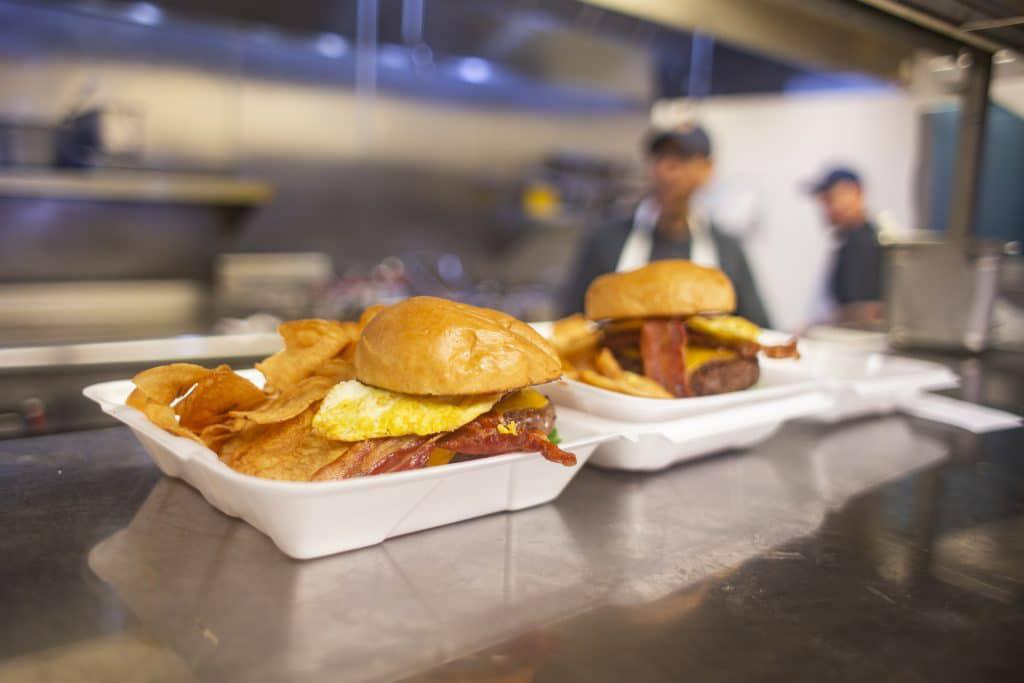As egg prices soar, Summit County restaurants shell out more money to meet their orders

Restaurant owners in Summit County are contending with the soaring cost of eggs in Colorado, forcing some to raise their prices and adding pressure to an industry still reeling from the impacts of COVID-19 and inflation.
“It’s been getting harder and harder to fill our orders,” said Tyler Michaux, a partner at Blue Moose Restaurant in the town of Breckenridge. “The price has basically doubled for us on our costs and that hurts considering that it’s breakfast. But we know it’s temporary, so we’re just trying to weather the storm.”
Within the last two weeks, Michaux said the average cost of an extra large case of eggs — which holds 180 eggs — has increased from a high of $30 to a high of $80. That can create major stress for a restaurant like Blue Moose, which Michaux said goes through dozens of eggs a day to meet its orders.
But even amid high demand, Michaux said his business has been able to fare better than others as it was able to stock up on eggs from food distributors earlier in the season before prices climbed. It’s led Blue Moose to give eggs to other area businesses low on supply, something Michaux said shows how “the community is so supportive of each other.”
Across Colorado, egg prices have risen following a deadly avian flu and a new state law which went into effect this year that mandates more room for chickens in large-scale hens.
According to reporting from the Colorado Sun, the highly-contagious avian flu that began sweeping through the state last year led to 85% of Colorado’s egg-laying chicken population being euthanized by farmers — roughly 5 million chickens. That figure has risen to 6.4 million chickens as of this month.
With a decimated egg supply, Colorado also began this year with a new law in effect that requires egg producers with more than 3,000 egg-laying hens to provide a ratio of one square foot per hen in a bid to promote cage-free farming — which could increase grocery bills, according to reporting from the Denver Post.
For Ian Beckman, owner of Colorado Marketplace and Bakery in the town of Silverthorne, those factors created “the perfect storm” during one of the busiest times of the year for businesses.
“About 25% of what I get for my bakery is eggs,” said Beckman, who added tourism has buoyed his business but said “my worry is if business slows down, I can’t bury that extra cost in quantity of sales.”
Beckman said despite incurring a roughly 100% increase in what he pays for eggs, he has yet to raise his prices. But if costs continue to climb, he may have to charge more.
“We’re fighting having to raise prices,” he said. “But if it gets any higher breakfast prices are going to have to rise.”
Justin Shillcutt, who co-owns Sunshine Cafe in Silverthorne, said he and his wife, Casey, recently raised prices on his food for a second time since April — mostly due to the cost of eggs. Since last spring when the two took over the restaurant, they’ve raised prices on all their entrees between 75 cents and $1.25, Casey Shillcutt said — with most of that increase happening at the beginning of January as egg costs spiked.
Prior to November, the two were paying about $38 for a case of 180 eggs. Now, they’re paying more than $100.
“We have to be able to keep the lights on here and pay the cooks and pay the servers and pay the hosts,” Shillcutt said. “Everything we serve has eggs. Even if there’s no eggs on the plate, we’re still using it to make batter, french toast.”
Schillcutt said the new state law has decreased the overall supply of eggs to restaurants as providers work to comply with the new requirements. He said it comes at a time when some providers still don’t have the necessary infrastructure for their hens, and added “demand is too high for what’s actually out there.”
Still, he said the law is well intentioned.
“I think it’s for the best. We all want to eat free-range eggs,” he said. “It’s just — growing pains is the way I look at it.”
For Michaux, the Blue Moose partner, he’s prepared for more uncertainty as food costs remain volatile, especially amid inflation.
“In the restaurant industry, we’re all pretty used to these things since COVID caused all these crazy fluctuations,” he said. “You never know what it’s going to be.”
Published on SummitDaily.com.
